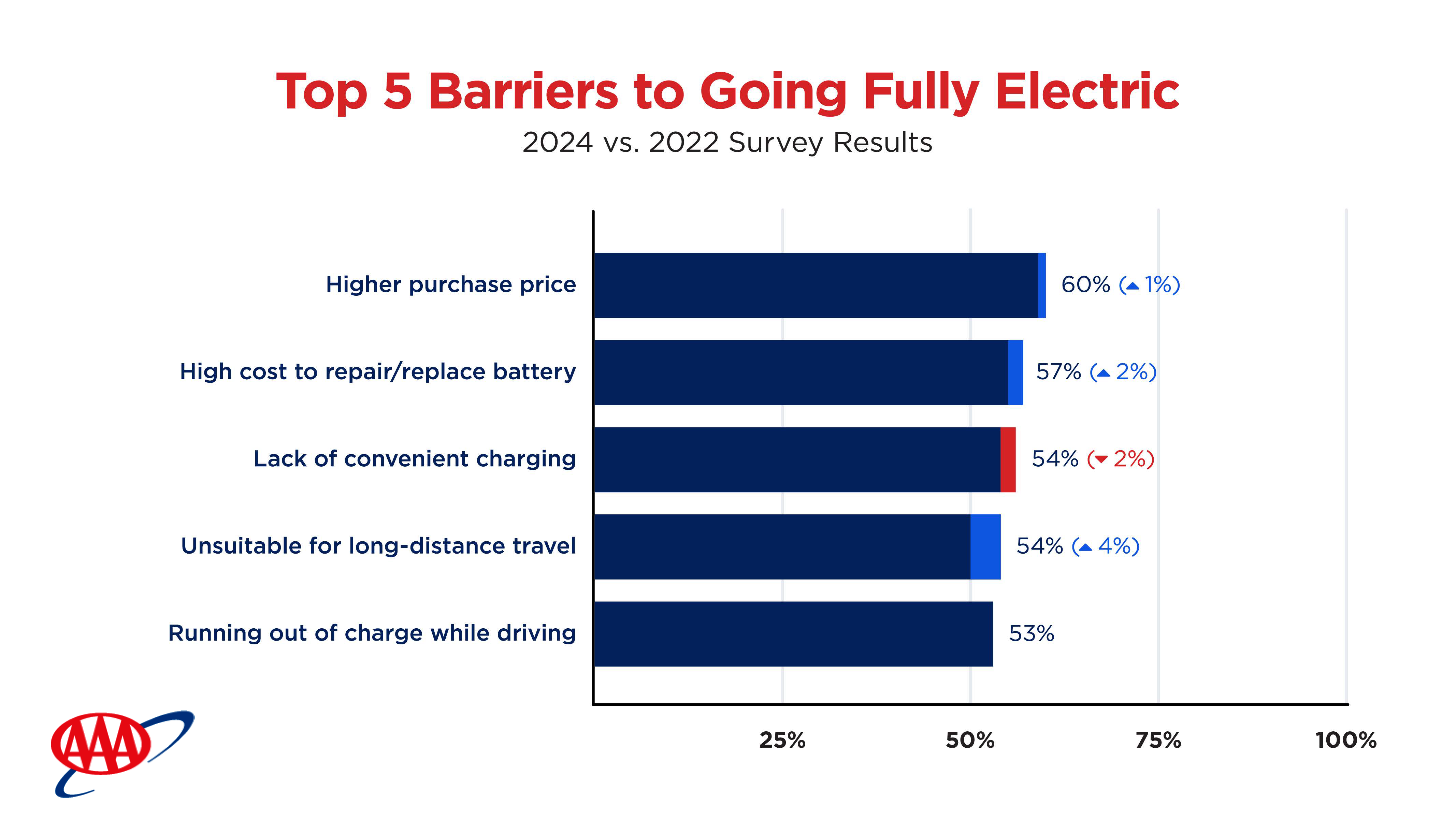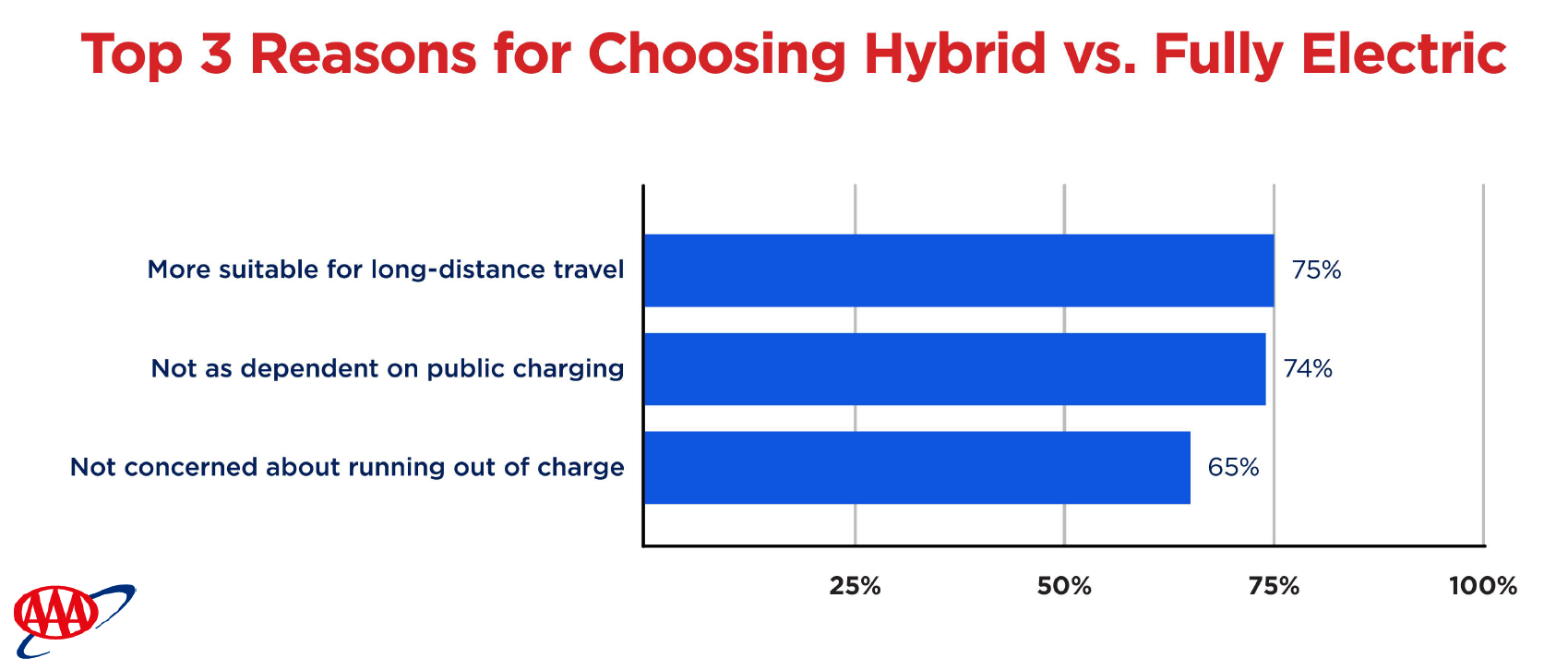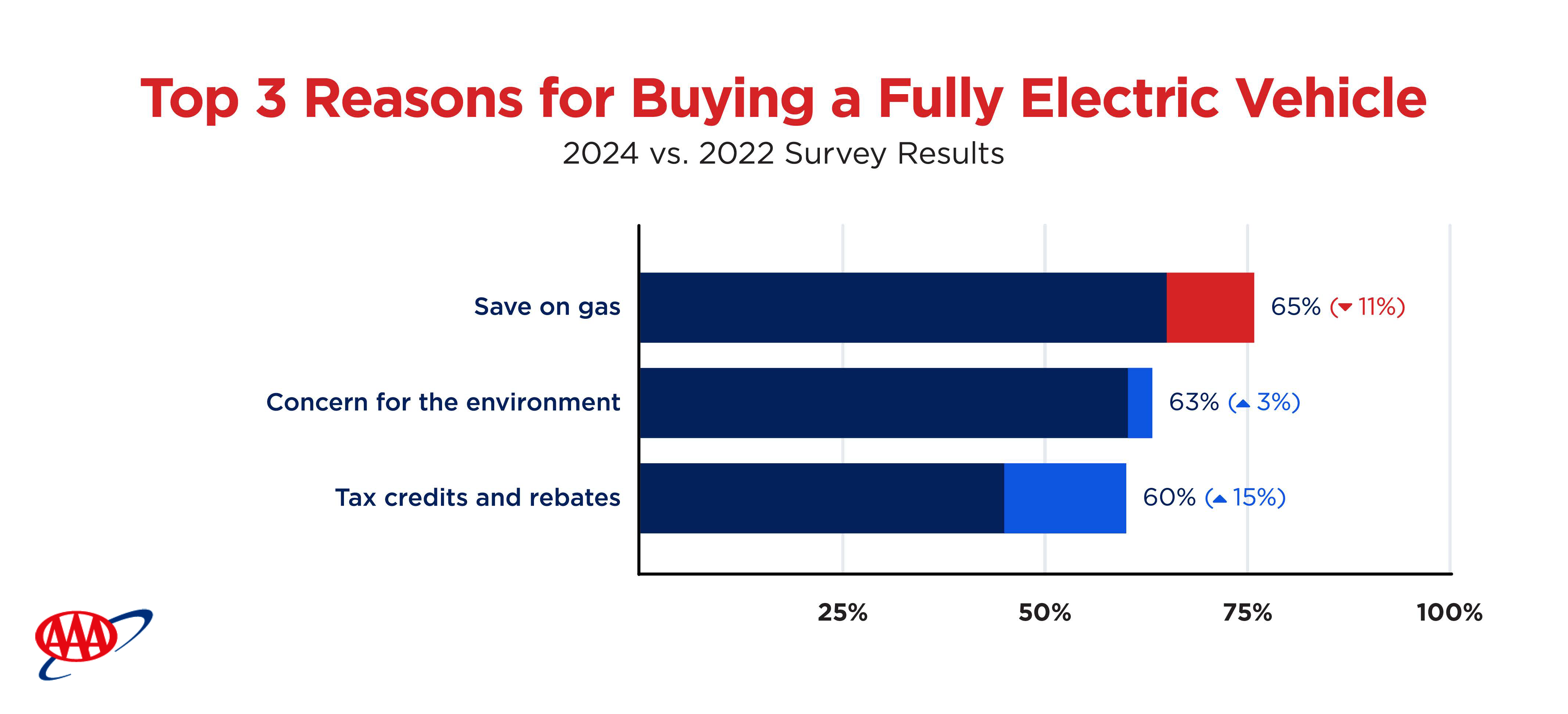
AAA finds drivers now prefer hybrids over EVs
By onMarket Trends
A recent AAA survey found 63% of consumers would be “unlikely” or “very unlikely” to purchase an EV the next time they buy a vehicle.
Eighteen percent of U.S. adults who responded to the survey said they would be “very likely” or “likely” to buy a new or used EV, excluding hybrids, down from 23% last year.
One in three adults (31%) said they would be “very likely” or “likely” to buy a hybrid, according to AAA.
“Early adopters who wanted an EV already have one,” said Greg Brannon, director of automotive research at AAA, in a release. “The remaining group of people who have yet to adopt EVs consider the practicality, cost, convenience, and ownership experience, and for some, those are big enough hurdles to keep them from making the jump to fully electric.”
AAA found the top hesitations in purchasing an EV continue to be cost, lack of convenient charging options, and range anxiety:
Three in ten also cited the inability to install a charging station where they live.
Accessible, reliable, affordable, and convenient charging is key to growing EV interest and adoption, according to AAA, including at-home charging which isn’t likely possible for those who live in an apartment or condo.
However, AAA found an EV might be a great choice for households with two or more cars; although, that might not be a good fit for those who rely on their cars for everyday use and travel.
“AAA believes there may be a near-term ceiling related to consumer adoption of battery electric vehicles due to their costs, charging accessibility, and range anxiety,” the release said. “However, hybrid options could bridge these gaps, broadening consumer interest in owning an EV.”
Access to a hybrid vehicle lessens the anxiety for consumers because it allows people to enjoy the benefits of electrification without feeling like they are disrupting their current lifestyle or travel plans, i.e. longer distance driving, less charging options, et cetera, AAA said.
“Deciding to make the leap to full electric may feel overwhelming for many consumers, and a hybrid option may be the way to bridge this gap,” Brannon said. “Consumer demand will ultimately dictate the future, and my prediction is that we will have a mix of EVs, hybrids, and internal combustion vehicles in dealerships and on the roads in the U.S. for many decades ahead.”
The survey was conducted April 4-8 using a probability-based panel designed to be representative of the overall U.S. household population. A total of 1,152 interviews were completed by adults 18 years or older.
Mitchell International’s Q1 2024 report on EV trends, released Tuesday, states decreased purchase prices caused weakened consumer confidence in the financial viability of used EVs. Prices fell by more than 30% year-over-year compared to a 3.6% decline for used internal combustion engine (ICE) vehicles, according to the report.
Mitchell also found that range anxiety continues to be a barrier to EV adoption but the rising cost of fuel and availability of charging ports (22% in the U.S. and 30% in the U.S. last year) could spur an increase in purchases especially as “exorbitant EV premiums are seemingly a thing of the past.”
According to E&E News by Politico, three Republican U.S. Congress members who own car dealerships have been pushing policies, holding hearings, and joining legislation “to thwart the president’s drive to electrify the nation’s auto sector.”
“The EV market is phony. It’s not real,” Rep. Roger Williams (R-Texas), a car dealer who chairs the House Small Business Committee, recently told E&E News.
Williams added the EV market is being artificially propped up by government policies like tax credits for vehicles and grants for charging stations, according to the article. He told E&E he doesn’t sell EVs at his dealership.
“It’s a woke market that the Big Three bought into under Obama,” Williams said. “They got themselves into a heck of a bind right now because nobody’s buying them. Nobody’s going to buy them.”
Williams and Rep. Mike Kelly (R-Pennsylvania), another dealership owner, have joined dozens of colleagues to cosponsor a Congressional Review Act resolution to overturn the Biden Administration’s tailpipe emissions rule, according to E&E. The rule would require half of all new vehicle sales to be electric by 2030. The act is led by Rep. John James (R-Michigan) and Sen. Pete Ricketts (R-Nebraska).
Images
Featured image credit: choochart choochaikupt/iStock



